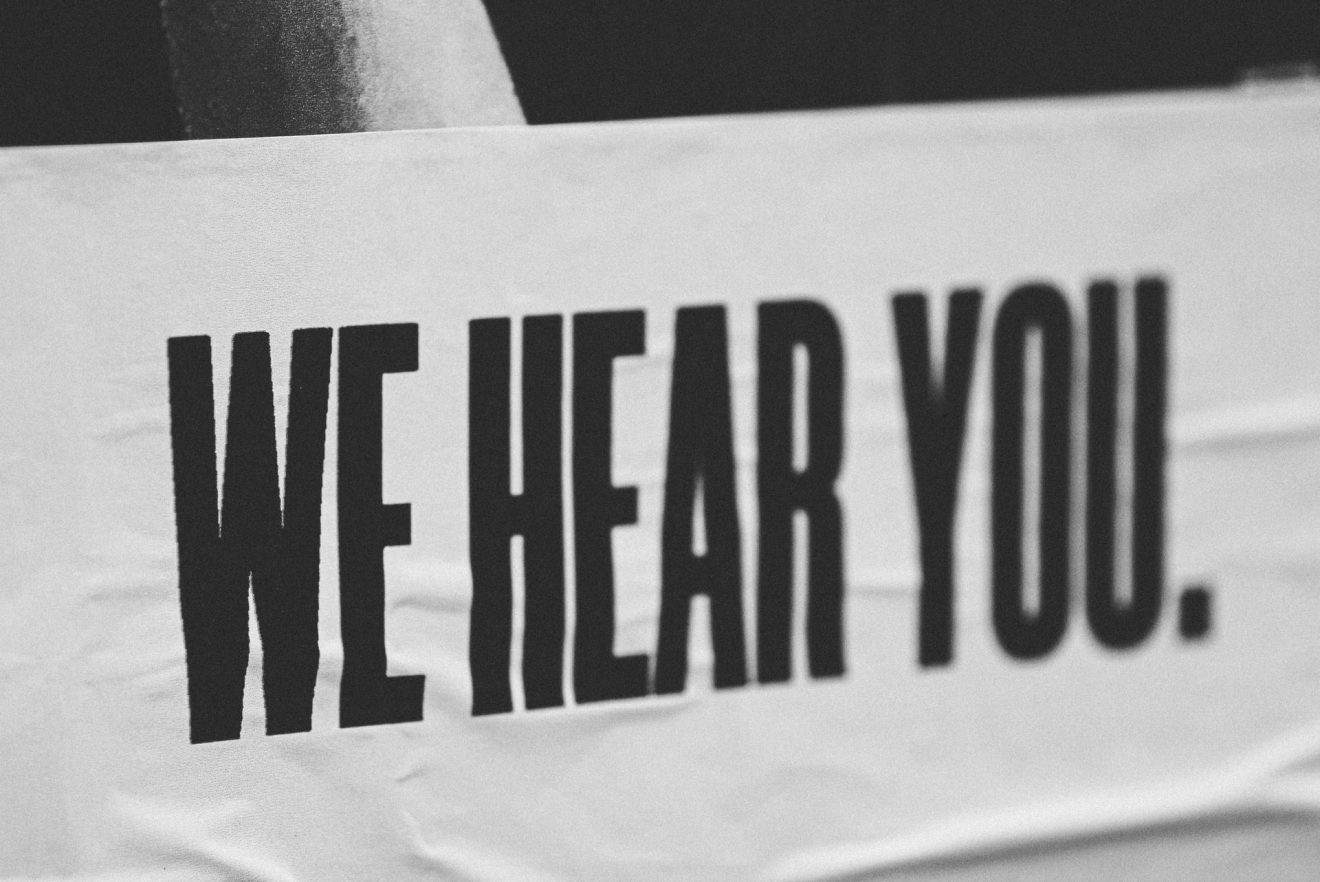The Editor of the Dominion Post, Anna Fifield, published two columns (5 & 12 February) on the evergreen topic of how the government and media interact. They were both useful and frustrating. In response, we want to address some of the problems and suggest an alternative model for the media and government that would be more fruitful for our democracy.
Fifield writes that ‘It is the job of the Fourth Estate to hold the powerful to account.’ The media is ‘a public watchdog on your behalf’. In trying to do this job, journalists are frustrated by government departments refusing to let them speak to subject experts or ministers, and by departments’ refusals to answer questions. Fifield says this shows ‘open government appears to be on the wane.’ But this is an interest in only two of the three pillars of open government: access to information and accountability. And too often accountability is a synonym for blame in Aotearoa.
People who work in government might say the media are partly to blame for this, because too often they have turned their demand for accountability into “who can we blame?”
It is hardly news to say people do things to avoid being blamed for something going wrong. But why has this grown into the toxic dynamic between media and government? The arrival of New Public Management theory in the 1980s over-stimulated the culture of accountability and blame in government. The internal mechanisms were supplemented by the arrival the Official Information Act. This provided the media and opposition parties with a new tool, but it has been used by them mainly to hammer nails of blame into people.
People want to understand what government is doing, but if something doesn’t match up with the over-optimistic promises made at the start of a project, we can’t just learn from it: blame must be apportioned. In response to this, and the accelerated news cycle induced by the arrival of the web, governments hired former journalists to help convey messages the government wanted the public to hear. If officials also helped use the techniques of delay available in the OIA when convenient to those in power, it was all fair political game (in their eyes).
In an accountability arms race, those with the legal control over the flow of information (albeit mediated slowly by contested OIA requests) are likely to win, at least in the short term. And politics is sadly all too focussed on the short term, so the openness of government suffers.
The civil servants quoted in Fifield’s second article point to the toxic dynamic that has been created. Generations of managers encourage public servants to avoid writing things down in case it won’t pass the ‘front page of the Dom Post test’. (Regardless of the fact that this is a breach of the Public Records Act). Officials and managers cop the blame for negative articles from the Chief Executive or minister – unless the minister is confident enough to handle public debate – and the pressure flows down the management line.
Effectively, the obsession with accountability – and especially ‘gotcha’ blame articles – is driving damaging behaviours. The result is that government openness dries up, and articles by the Chief Executive of the PM’s department calling for the OIA to be weakened. And even suggestions in draft advice from the Ministry of Justice that the right to seek information under the OIA should be removed.
When focussing on blame and questions such as who represented the country at the opening of the Olympics, the media often fails to fulfil its role of watching out for the public. Here are two examples.
First, the Data and Statistics Bill. This dangerous proposal is both the most serious attack on New Zealanders’ privacy ever, and an assault on our right to information under the OIA that has been condemned by the Ombudsman. The former Government Statistician has called in his submission for the Bill to be withdrawn. The Bill formalises the disgraceful data-sharing processes permitted by the last Privacy Commissioner and created by the current Acting (and probably next) Privacy Commissioner in her former role as Government Statistician. If passed, it will entrench the odious Silicon Valley surveillance capitalism model of extracting ‘value’ from our interactions with public services at the heart of our government. All our dealings with the state – for benefits, resource consents, OIA requests – will become data streams to be mined by government officials, academic researchers, the private sector and the intelligence agencies.
Data collected by different government agencies for any limited purpose can and will be re-purposed for ‘research’. This Bill creates an architecture that brings us within a couple of small steps of China’s social credit score system for its citizens. Even if we think this mass data-sharing is a good alternative to investing in surveys conducted by Stats NZ, access will be determined solely by the Government Statistician, outside the OIA. Which means this regime will be subject to less oversight even than the Wanganui Computer Centre, which in 1976 had a governance committee with a non-government lawyer and computer scientist on it.
You might have expected the media – as watchdog – to have given the Bill serious coverage. You would be wrong. At the time of writing, a search of Stuff’s website reveals not a single article on the Bill from any newspaper in the group. Similarly, nothing from Newsroom. The NZ Herald, which you might think would be concerned by the effect of the Bill’s broad powers of entry into businesses, has only syndicated the single article by Radio New Zealand. Which, under the dismissive headline of ‘A dozen quirky new laws you may not have heard of’, simply recycled the government press release. Only the Otago Daily Times has written about the Bill’s first reading, and then in the context of a local MP being the relevant Minister.
Second example: This government strengthened the previous government’s policy on publication of Cabinet papers. It states that – unless there is good reason to withhold them – ministers should publish Cabinet papers 30 business days after the meeting at which they were considered. No other country in the English-speaking world has managed this. In the UK, Australia or Canada you’d get them after 20 or more years. But because it’s only a policy promise, not embedded in law, the government can walk away from it. Which it did, without warning or providing a reason, when the Delta outbreak occurred last August. Publication didn’t resume until late November. Did journalists ask about this, either at the lunchtime press conferences or elsewhere? No. The government was only busy finalising policy on vaccine passes and mandates when the publication of Cabinet papers dried up, so this retreat into secrecy was nothing major that journalists should have been asking about, eh?
Attacks on government secrecy from a media that does not scrutinise a government Bill, or ask about an open government policy being abandoned, show that the media is failing on its own terms.
This is unsurprising for two reasons. First, because news organisations prioritise horse-race style coverage of party politics over informing debates on policy. There are some great exceptions – Stuff’s work on OIA, the work of journalists like Kirsty Johnston, Aaron Smale, Marc Daalder, Eloise Gibson, Phil Pennington, and a number of others. But political coverage is failing. The capital city’s newspaper should appoint a Public Policy Editor.
Second, because media organisations have not reflected on how their role in a democracy should have shifted since the 18th century, when the term ‘the Fourth Estate’ was first coined. The arrival of the web has led to much soul-searching by media companies about business models as Google, Trade Me and Facebook have captured the display and classified advertising income that paid journalists’ salaries.
But since everyone now has access to vast quantities of information, and public expectations of openness and participation in their democracy are changing, why has the media not reflected on its role and shifted its focus towards engaging with readers on policy issues they’re interested in? Interactive engagement has generally stopped at some useful innovations in multi-media and data journalism.
Open government is about far more than access to information for accountability. Fundamentally, it is – as the OIA put it in 1982 – about enabling people to participate effectively in the making and administration of laws and policies. Active verbs rather than passive receipt of information.
How might the media actually help strengthen our democracy? Providing a ‘public square’ with opinion pieces such as this has been the traditional route. But this is too small and controlled to substantively lift the quality of discussion and debate about enduring policy issues.
Governments around the world are failing to tackle big issues such as climate change, biodiversity collapse, ageing populations, housing, tax, welfare and the future of work. Predominantly this is because they – through party funding – are captured by rich old white men and their priorities. The media is largely the same, although Stuff’s new ownership might mean change in their pages. Unsurprisingly, this leads people to feel helpless, and the dominant frame of government failure and blame in reporting feeds this feeling, as well as disengagement and anger. How might the media help people work together to find ways of navigating big challenges? Could it facilitate meaningful input into public decisions? After 200 years of ‘letters to the editor’ and 20 years of online comments, what might come next?
By asking people what they wanted New Zealand to be like in 20 years, TVNZ’s two seasons of ‘What Next?’ (2017, 2019) showed that the public have a strong interest in listening to the views of experts and innovators, and that there was a strong appetite from viewers for being able to share their ideas for dealing with economic disruptions, artificial intelligence and other issues using standard digital polling technologies.
Inspired by work in Taiwan, Scoop Independent News in New Zealand developed its ‘HiveMind’ public engagement platform in 2016 to show that members of the public could engage productively with public issues and, in doing so, shape the political and news agenda. Built using the Pol.is software, HiveMind allows those taking part to consider statements about an issue, add their own statements for others to vote on, and to see how their opinions fit with those of other people. Participants are encouraged to return to the HiveMind regularly over several weeks to read new articles, review emerging patterns, vote on new statements and add their own ideas, perspectives and proposals for all other participants to consider.
Scoop’s seven HiveMinds show that media organisations are well placed to host open discussions about public issues and that these can be conducted in ways that are safe, coherent and insightful. Crucially, they also increased the number of visitors to the website.
These two examples show us a way for the media to change how politics is currently practised. Accountability is a crucial part of democracy, but by moving beyond it and becoming a player in the democratic co-production of our future, the media can not only change the way the public interacts with it, but governments too.
A media that surfaces the policy preferences of the public in a constructive way may not only loosen the grip of rich old white men on political parties, but change the dynamic of its relationship with government by emboldening politicians to speak to journalists as part of media-led discussions on the future of the country.


